Agriculture and Environment Newspaper - The mouthpiece of the Ministry of Agriculture and Environment , the People's Social Forum for the Sustainable Development of Vietnam, whose predecessor was Tac Dat Newspaper - the Production Promotion Agency of the Ministry of Agriculture (now the Ministry of Agriculture and Environment), was established by the Government of the Democratic Republic of Vietnam under Decree No. 129 dated December 4, 1945 signed by Minister of the Interior Vo Nguyen Giap; was named by President Ho Chi Minh, approved the content of the newspaper and directly wrote the article: "TO THE FARMERS OF VIETNAM" assigned the task, introduced, and instructed Tac Dat Newspaper in the first issue, published on December 7, 1945. This demonstrates President Ho Chi Minh 's special concern for the country's agriculture and the Production Promotion Agency - the first newspaper of the Ministry of Agriculture (now the Ministry of Agriculture and Environment), which is a great honor not only for Tac Dat Newspaper (now the Agriculture and Environment Newspaper) but also for the Vietnamese revolutionary press in general.
Throughout its 80-year history, to suit each stage of the Revolution, the Ministry of Agriculture has been renamed and merged many times, until now it is the Ministry of Agriculture and Environment. Therefore, the Tac Dat Newspaper has also been changed to many different names on the basis of separating, merging, and consolidating newspapers to carry out the political propaganda tasks assigned by the Ministry, such as: Canh Nong Magazine , Toan Dan Canh Tac Newspaper, Nong Lam Newspaper , Agricultural Science and Technology Newspaper, Agriculture Newspaper, Natural Resources and Environment Newspaper, Vietnam Agriculture Newspaper .
After the Ministry of Agriculture and Rural Development merged with the Ministry of Natural Resources and Environment to form the Ministry of Agriculture and Environment in February 2025, the Vietnam Agriculture Newspaper (the mouthpiece of the Ministry of Agriculture and Rural Development) merged with the Natural Resources and Environment Newspaper (the mouthpiece of the Ministry of Natural Resources and Environment) to form the Agriculture and Environment Newspaper according to Decree No. 35/2025/ND-CP of the Government dated February 25, 2025. On April 14, 2025 , the Agriculture and Environment Newspaper published its first issue titled Agriculture and Environment .
But, in any historical circumstances, whether difficult or favorable, regardless of its name, Tac Dat Newspaper , now Agriculture and Environment Newspaper, has always been the mouthpiece of the Ministry/industry, the forum of the people, always implementing Uncle Ho's advice "Tac Dat Newspaper will instruct farmers on how to make agriculture progress quickly. The guidance of Tac Dat Newspaper is as precious as Tac Vang", propagating all policies and guidelines of the Party, of Uncle Ho, policies and laws of the State on agriculture, farmers, rural areas, natural resources and environment, accompanying the Ministry/industry, localities, enterprises and farmers, actively contributing to the glorious feats of arms of the Nation in defending the Fatherland, fighting against colonialism, imperialism and glorious victories in building Socialism, including the outstanding achievements of Vietnamese agriculture in the past 80 years, as a result of implementing the advice and wishes. His saying: "If a country wants to be rich and strong, it must develop agriculture" to "stand shoulder to shoulder with the great powers of the five continents" for a prosperous and happy life for the people.
Period 1945-1954
“Increase production! Increase production now! Increase production again! That is our slogan today. That is our practical way to maintain our freedom and independence.”
On November 14, 1945, the Government of the Democratic Republic of Vietnam (now the Socialist Republic of Vietnam) established the Ministry of Agriculture (now the Ministry of Agriculture and Environment) to carry out two tasks:
I)- Implement a rapid production increase program in the North and North Central regions to partially solve the famine that is threatening the people.
II)- Prepare a foundation for agricultural development to pave the way for the development of a national agricultural economy in the future.
To successfully carry out the tasks assigned by the Party Central Committee, the Government, and President Ho Chi Minh to the Ministry of Agriculture in an extremely difficult and "critical" context after the country gained independence, especially the famine in 1945, immediately after the establishment of the Ministry of Agriculture, Minister of Agriculture Cu Huy Can went to the Northern Government to report to President Ho Chi Minh about the request to publish a newspaper as an agency to promote, mobilize production and provide technical guidance for the Ministry of Agriculture to the people. President Ho Chi Minh immediately agreed and approved the content of the newspaper, naming the first newspaper of the Ministry of Agriculture: Tac Dat Newspaper.
On December 4, 1945, Minister of the Interior Vo Nguyen Giap signed Decree No. 129 establishing Tac Dat Newspaper - the production promotion agency of the Ministry of Agriculture, assigned to Mr. Hoang Van Duc, General Director of the Agricultural Department under the Ministry of Agriculture as the Chairman. Tac Dat Newspaper was published to the Administrative Committee, the Production Promotion Boards of the provinces, districts, communes and agricultural establishments.
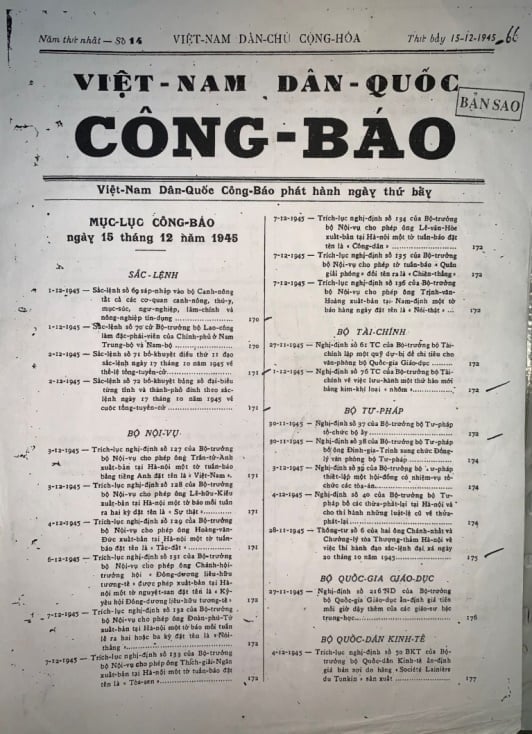
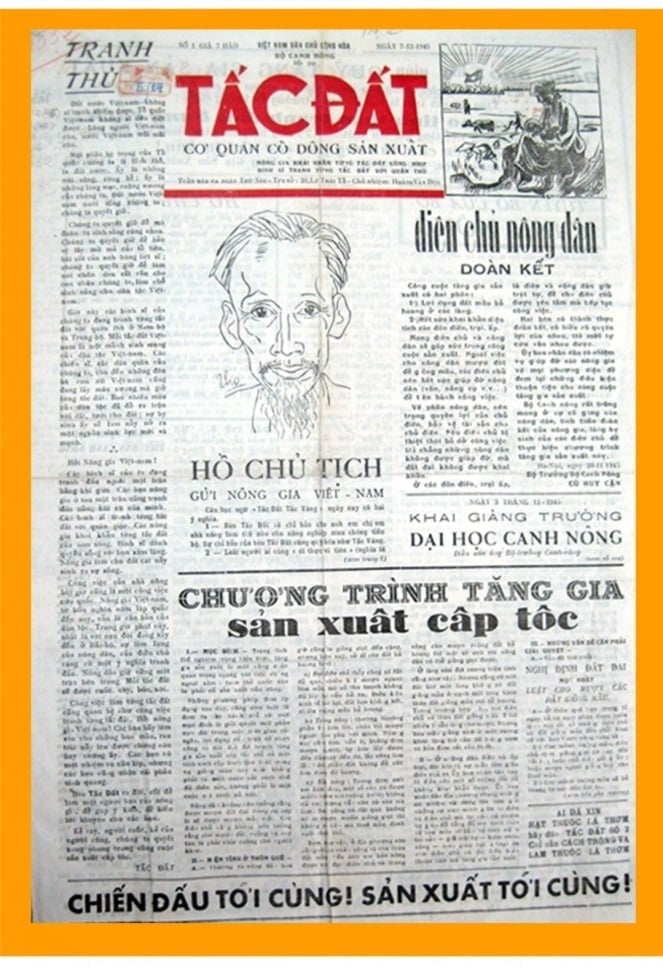
On December 7, 1945, Tac Dat Newspaper published its first issue (No. 1). In the first issue, President Ho Chi Minh personally wrote the article: "TO VIETNAMESE FARMERS" assigning tasks, introducing, and instructing Tac Dat Newspaper.
President Ho Chi Minh wrote:
The proverb: "Every inch of land is worth its weight in gold" today has two meanings:
1- The Tac Dat Newspaper will instruct farmers on how to rapidly progress agriculture. The guidance of the Tac Dat Newspaper is as precious as an Inch of Gold.
2- All humans “take food as their first priority” (meaning that they need to eat first). Our country “takes agriculture as its foundation” (meaning that farming is its foundation). If people want to have enough to eat, they must cultivate a lot. If the country wants to be rich and strong, it must develop agriculture. So we should not abandon any inch of land. We must value every inch of land as an inch of gold.
To save the country, soldiers fight at the front. To build the country, farmers work hard in the fields. Soldiers work hard to protect the country. Farmers work hard to help soldiers. The two jobs are different but in fact they are cooperation. Therefore, both sides have contributed to the nation and are heroes.
At present, we have two important tasks: famine relief in the North and resistance in the South. “If we have enough food, our soldiers will be strong”, and if we plant a lot, we will avoid hunger. If we implement “Every inch of land is gold”, we will definitely win in these two tasks.
Increase production! Increase production now! Increase production again! That is our slogan today. That is our practical way to maintain our freedom and independence.
Fellow farmers! Forward! Forward!”
And, right in the first issue, Tac Dat Newspaper published the articles: "Declaration of the Ministry of Agriculture", "Decree on the reclamation of cropland", "Taking advantage", "Landlords and farmers unite", "Rapid production increase program", "Joint conference between landlords and farmers", "Opening of agricultural university" ... are the immediate actions of the Government and the Ministry of Agriculture to concretize the policy of President Ho Chi Minh in his article "TO THE FARMERS OF VIETNAM" to widely propagate to the revolutionary government at all levels and all people.
Also in this first issue, Tac Dat Newspaper published many slogans to promote and propagate Uncle Ho's instructions: "Farmers reclaim every inch of land, just like soldiers fight every inch of land with the enemy!" , "Fight to the end! Produce to the end! "Compatriots! Please help the production increase fund", "Increasing production as well as fighting foreign invaders is the task of the entire nation", "Increasing production is a long-term resistance plan"; "Take up your hoes and occupy every inch of land", "Let's raise the fighting spirit by: 1) Participating in the production increase work. 2) Supporting the production increase movement; "Landlords, merchants, capitalists! Please donate money, raw materials, and farming tools to the production increase fund!" ...
In the following issues, despite the extremely difficult and deprived circumstances, Tac Dat Newspaper, in addition to continuing to propagate the Party's policies and guidelines, President Ho Chi Minh's policies, decrees, circulars, and instructions of the Party Central Committee, the Government, the Ministry of Agriculture, etc., focused on in-depth propaganda on the instructions, guidance, and production promotion in the direction of "holding hands and showing work" of the Ministry of Agriculture in all fields of cultivation, animal husbandry, plant protection, land, dykes, forestry, etc. to carry out Uncle Ho's call: "Increase production! Increase production now! Increase production again!"
Regarding cultivation and scientific and technical guidance in agriculture for farmers, Tac Dat Newspaper has articles such as: "Must urgently make a garden to grow sweet potato vines", "Corn and sweet potatoes", "How to grow aromatic leaves", "A plant that should be grown everywhere: Banana tree", "Agricultural calendar in the North: Sugarcane", "A program to improve silkworm breeding", "Gac tree", "Stubble mushroom growing profession"...
Regarding water and land resources, Tac Dat Newspaper has articles such as: "Water and trees", "Reclaiming every inch of land", "Not an inch of land left fallow, not a single person sitting idle", "Regarding the management of currently ownerless plantations and hamlets", "Permanent agricultural training: Choosing land"...
Regarding disease prevention, crop and livestock protection, Tac Dat Newspaper organized a special topic on fighting rats and bugs, crop and livestock protection "Want to get rid of rats and bugs: Quickly - At the same time - everywhere" with many articles: "The enemy of farmers: Rats", "Vietnam's agricultural department sends to farmers: Necessary things in the process of "eradicating" rats and bugs", "Kill rats with a poison: Arsenic acid", "Instructions from the Ministry of Agriculture on cattle and buffalo epidemic: Causes - symptoms and prevention and treatment", "Thrush disease", "Thrush disease"...
Regarding natural disaster prevention and control and production protection, Tac Dat Newspaper has articles such as: "President Ho Chi Minh came to preside over the inauguration ceremony of the My Loc and Hung Nhan dikes", "All people make efforts to protect the dikes", "The rice crops need to be borrowed for flooded areas or flooded provinces", "Lending rice for seeds is a meaningful thing", "Saving crops from drought", "Floods", "Preventing salt water", ...
Regarding forestry, Tac Dat Newspaper published a special issue on forestry, with articles such as: "Spirit", "Forests are national assets", "Forestry tasks", "Organization of forestry offices", "Are Vietnamese people qualified to run forestry offices?", "The necessity and democratic character of the forestry research committee", "New spirit and attitude of forestry", "Deforestation causes floods and dike breaks", "Mountain forests before the movement to increase production", "Destruction of mountains and forests", "Cut down forests while the water is rising", "Popular forestry", "Forest fires",...
The article “The brilliant victory of the first winter-spring vegetable crop after the revolution” was the first agricultural achievement right after the country gained independence, reflecting the great efforts of the Government and the Ministry of Agriculture in implementing Uncle Ho's instructions, advice, and policy : “Increase production! Increase production now! Increase production again! That is our practical way to maintain freedom and independence”. Along with Uncle Ho's call to “Share rice and clothes. Every 10 days, skip one meal, every month, skip three meals, and use that rice (one cup per meal) to save the hungry poor”, the terrible famine of 1945 was gradually resolved.
-----------------------------------------------------------
"In the process of building the country, the Government relies on farmers and relies largely on agriculture."
On April 11, 1946, President Ho Chi Minh wrote an article “TO FELLOW FARMERS” in the special issue of Tac Dat Newspaper on agricultural cooperatives, No. 10, published on May 1, 1946.
President Ho Chi Minh wrote:
FELLOW FARMERS!
“Vietnam is an agricultural country. Our economy is based on agriculture. In the process of building the country, the Government relies on farmers and relies largely on agriculture.
What is a cooperative?
In short, cooperatives are pooling capital and strength together. With more capital and strength, there will be less hardship and more benefits. Therefore:
AGRICULTURAL COOPERATIVE is an organization that benefits farmers. It is the most effective economic struggle to help build the country.
AGRICULTURAL COOPERATIVES are a way to unite farmers and make agriculture prosperous.
AGRICULTURAL COOPERATIVES help farmers achieve their goals, benefiting both the country and the people.
FELLOW FARMERS
We all want to be well-off and rich, and for our country to prosper and our people to be strong. So let us quickly pool our capital and efforts to establish AGRICULTURAL COOPERATIVES everywhere; from villages to cities, everywhere there must be COOPERATIVES.
Proverb says: "A single tree does not make a forest, many trees together make a high mountain."
Fellow landowners and farmers, let's work together enthusiastically to build the nation.
To implement that policy and call, the Ministry of Agriculture has deployed a series of solutions from mechanisms, policies, organizations to instructions, agitation, mobilization, and implementation by the entire people. The Tac Dat Newspaper continues to participate with the highest spirit to bring the policy and call of President Ho Chi Minh and the policies and instructions of the Ministry of Agriculture to the entire people, into life, first of all, a special issue with many profound articles and wide-spread propaganda, mobilization, and dissemination such as: "Circular of the Minister of Agriculture on the organization of agricultural cooperatives", "Model charter of inter-village agricultural cooperatives", "Establishing agricultural cooperatives to: Fight through economics", "Working as a group towards a new life", "Basic principles of organizing agricultural cooperatives", "Sample agricultural cooperative shares", "Purpose and program of activities of the provincial cooperative federation", "New activities in the countryside: Agricultural cooperatives", "How to "Formulation of agricultural cooperatives", "Questions and answers on agricultural cooperatives"...

Besides, to connect the central and local governments, the government with farmers, to well implement Uncle Ho's instructions, the policies of the Central Party, the Government, and the Ministry of Agriculture, Tac Dat Newspaper has opened columns such as "Questions and Answers on Agriculture", "Explanations"... to promote increased production.
The propaganda effectiveness of Tac Dat Newspaper has actively contributed to propagating, encouraging, and guiding the implementation of the policy of President Ho Chi Minh, the Party Central Committee, the Government, and the Ministry of Agriculture and Rural Development "Reclaiming every inch of land" to get land for food production, implementing the movement "All people increase production", "No one sits idle"... From there, expanding the area of cultivated land from urban to rural areas; disseminating, guiding, and equipping the people with techniques for growing rice, short-term crops such as corn, sweet potatoes, and especially vegetables to solve the immediate hunger problem.
Therefore, within only 6 months after the country gained independence, the area and productivity of all crops in the country increased rapidly compared to before: Sweet potato area increased 3 times, productivity increased 5 times, reaching 330,000 tons of dry tubers; corn area increased 3 times, output increased 4 times, reaching 240,000 tons of grain; rice production reached 530,000 tons of paddy... Thanks to that, by 1946, famine was gradually pushed back. A part of food was stored to prepare for the 9-year long resistance war against the French.
It can be affirmed that Tac Dat Newspaper - the production promotion agency of the Ministry of Agriculture has well performed the production promotion task assigned by the Ministry of Agriculture and the advice of President Ho Chi Minh: " Tac Dat Newspaper will instruct farmers on how to make agriculture progress quickly " , contributing to the great victories of agriculture in the first year of Vietnam's independence, gradually pushing back the immediate famine, creating the initial foundation, "paving the way for the development of a national agricultural economy in the future ".
-----------------------------------------------------------------------------------------
“In the preparation phase for the general counter-offensive, increasing production is not only aimed at ensuring enough food and warmth for the entire population, but also paying special attention to reserves and supplies for the troops... and the day of victory will not be far away.”
After the National Resistance Day (December 19, 1946), the Party and Government agencies, including the Ministry of Agriculture, withdrew to the Viet Bac resistance zone to lead the Revolution. The people working for the Tac Dat Newspaper also went to the Viet Bac resistance zone to continue to carry out the teachings of President Ho Chi Minh and the propaganda mission assigned by the Ministry of Agriculture.
In response to President Ho Chi Minh's call: "Organize guerrillas everywhere, increase production everywhere, even if we have to withdraw from the city, we don't need to, we will keep all the countryside" , despite the extremely difficult and deprived circumstances in the Viet Bac resistance zone, the Editorial Board of the Newspaper continued to write, edit, publish and distribute the Agricultural Magazine - the research, popularization and dissemination agency of the Ministry of Agriculture with a small size (20x25) instead of the large-sized Tac Dat Newspaper (30x42) to better suit the resistance situation (can be pocketed), bringing the highest propaganda effect in the difficult and deprived resistance situation, constantly being besieged and searched by the French.
In the Viet Bac resistance base, President Ho Chi Minh continued to pay special attention to the agricultural sector when he wrote a letter to the Viet Bac Agricultural Conference, the delegates published in Canh Nong Tap San No. 4, September 1949.
President Ho Chi Minh wrote:
The North-Vietnam Agricultural Conference was held at a time when the entire people and the Government were actively preparing for a general counter-offensive and the Ministry of Agriculture was promoting the implementation of the Government's comprehensive economic program. Such a conference was very timely.
I send my warm greetings to the delegates and wish the Conference success.
During the preparation phase for the general counter-offensive, increasing production not only aims to provide enough food and warmth for the entire population, but also requires special attention to reserves and supplies for the troops. Particularly at the bases, the work of leaving behind is even more important and must be carried out at all costs, despite many difficulties.
To achieve that result, I reiterate the points here:
1) Production increase must be planned closely to the situation and capacity of the people and the locality.
2) We must try to account for production to know clearly to what extent production increase is progressing.
3) Agricultural cadres must always stay close to the people, be friendly with the people, understand the people and work for the people.
4) We must actively apply the emulation method in all matters. Compete yourself and guide and organize all farmers to compete to do things quickly, well, and in large numbers.
After the conference, review the results, identify the advantages and disadvantages. I hope you will learn a lot of experience and work with the spirit of a volunteer soldier , always competing in everything.
In the current resistance period, although there are still many difficulties and they may be more difficult than before, because we are all actively competing to move towards victory, the general counter-offensive will certainly be fully prepared and the day of victory will not be far away.
Best regards and best wishes.

Implementing his directive, the Government and the Ministry of Agriculture promoted the organization and implementation of the movement "All people actively compete in farming to prepare for a general counter-offensive" and the Newspaper had many propaganda and agitation articles such as: "On the patriotic emulation field for farmers", "Inter-zone V emulation", "Agricultural cadre training competition", "Silkworm breeding competition", "Volunteer farming team", "Ministry of Agriculture commends", "Employees are commended and encouraged"...
At the same time, implementing Uncle Ho's request " I hope you will gain a lot of experience and will work with the spirit of volunteer soldiers...", the Ministry of Agriculture organized an assessment of advantages and disadvantages and drew many lessons in directing production to prepare for a general counter-offensive. And, the Agriculture Journal had many articles such as: "Lessons on production leadership in the previous winter-spring crop (1951-1952)", "Summary of experience in leading technical movements in 1952", "Reviewing the content and style of policy making", "Consolidating ideology, rectifying working style", "Some issues on agricultural production in communes after mass mobilization", "Agricultural trade unions against bureaucracy...", "National agricultural technical leadership conference"..., in which the contents focused on reviewing shortcomings and drawing lessons to implement Uncle Ho's directive.
The propaganda effect of the Agricultural Magazine had great significance for the people of Viet Bac during the first years of the long resistance war against French colonialism, which was extremely difficult, with food shortages and the Viet Bac base area constantly surrounded and isolated by French colonialists.
At the end of 1949, the situation in the world and in the country had favorable developments for the resistance war against France. Implementing President Ho Chi Minh's directive: "The whole people actively compete in farming to prepare for a general counter-offensive" , with the approval of the Ministry of Agriculture, the Agriculture Magazine published another newspaper , the Toan Dan Canh Cac - the agency for promoting and guiding increased production of the Ministry of Agriculture. In the article "A few prefaces", published in the first issue, Mr. Nghiem Xuan Yem - Deputy Minister of Agriculture - Editor-in-Chief wrote to implement President Ho's directive:
The mission of the Toan Dan Canh Cay Newspaper is:
- Firstly, to make people understand the Government's policies on agriculture and what needs to be done in the preparation phase for counter-offensive and general counter-offensive. For example: Each family grows 200 cassava roots and raises 10 chickens and ducks to sell to the army.
- Second, to guide people on how to grow crops and raise livestock in accordance with science. Help people to have enough food and clothing. For example: Increase rice field productivity, increase rice and crop acreage, maintain livestock hygiene, and prevent epidemics.
- Third, to provide more documents for cadres in the work of mobilizing farmers. For example: To mobilize farmers to use fertilizer, we must instruct them on how to preserve fertilizer properly. To mobilize farmers to increase livestock production, we must instruct them on how to maintain hygiene to prevent epidemics...
- Fourth, collect experiences and opinions of people in cultivation, animal husbandry, professional experiences and opinions as well as organization.
To carry out the above tasks, Toan Dan Canh Tac Newspaper promoted and widely guided production policies and measures on three aspects: Economy, technology and society, contributing to the successful implementation of the "War Production Program" in 1950 and 1951. In 1952 and 1953, Toan Dan Canh Tac Newspaper focused on propagating the national emulation congress, rent reduction, land reform, and the implementation of land for the tillers, actively contributing to the successful implementation of the tasks of the agricultural sector.
It can be affirmed that under the wise and talented leadership of President Ho Chi Minh, his special attention to the agricultural sector (now Agriculture and Environment), during the 9-year long resistance war against French colonialism (December 1946 - May 1954), the Ministry of Agriculture successfully completed all tasks assigned by President Ho Chi Minh and the Toan Dan Canh Cach Newspaper/Canh Nong Magazine - the agency promoting and guiding production increase of the Ministry of Agriculture - actively contributed to the implementation of his Directive: "Increase production", "All people actively compete in farming to prepare for a general counter-offensive", bringing the country's agricultural production, especially agriculture in the North, in extremely difficult and deprived circumstances, but everywhere increased crops, productivity and output increased many times.
From the great victories on the agricultural front, famine continued to be pushed back, soldiers on the front had enough food to fight and defeat the invading French colonialists after 9 years of resistance war and national construction, creating the historic victory of Dien Bien Phu "famous in five continents, shaking the earth" on May 7, 1954.
------------------------------------------------------------------------------------------------
Period 1954-1975:
“Vietnam is an agricultural country. Our economy is based on agriculture… If our farmers are rich, our country will be rich. If our agriculture is prosperous, our country will be prosperous.”
Sau chiến thắng Điện Biên Phủ “lừng lẫy năm châu, chấn động địa cầu”, thực hiện chủ trương của Đảng và Bác Hồ lãnh đạo nhân dân cả nước vừa xây dựng Chủ nghĩa xã hội ở miền Bắc, vừa kháng chiến chống Mỹ cứu nước ở miền Nam, thống nhất nước nhà, đưa cả nước tiến lên Chủ nghĩa xã hội, để phù hợp với thời kỳ cách mạng giai đoạn này, tháng 2/1955 Bộ Canh nông được đổi tên thành Bộ Nông lâm.
Bộ Nông lâm được Hội nghị Trung ương lần thứ 8, khóa 2 của Đảng giao nhiệm vụ: “…Phải khôi phục sản xuất nông nghiệp để quyết vấn đề lương thực làm cơ sở cho việc khôi phụ và phát triển công thương nghiệp. Phải khôi phục sản xuất nông nghiệp và nghề phụ ở nông thôn để nâng cao mức sống của người nông dân, do đó củng cố công nông liên minh” và nhiệm vụ Chủ tịch Hồ Chí Minh giao: “Nguyện vọng của đồng bào nông dân là khi chưa có ruộng đất thì muốn có ruộng đất, khi đã có ruộng đất rồi thì muốn sản xuất nhiều để được ấm no. Muốn tăng gia sản xuất thì phải làm tập thể… Hiện nay ở nông thôn cần phải phát triển rộng khắp tổ đổi công, nó là hình thức thấp nhất, giản đơn nhất”.
Để triển khai thực hiện chủ trương trên của Trung ương Đảng, Chủ tịch Hồ Chí Minh giao cho ngành Nông lâm, kế thừa và phát huy Báo Toàn dân Canh tác/Tập san Canh nông/Tập san Nông lâm/Tạp chí Nông lâm được hợp nhất, đổi tên thành Báo Nông lâm – Cơ quan phổ biến kỹ thuật của Bộ Nông lâm do Bộ trưởng Bộ Nông lâm Nghiêm Xuân Yêm làm Chủ nhiệm.
Trong bài “Cùng bạn đọc thân mến” , đăng trên Báo Nông lâm số đầu tiên, viết:
…Để phục vụ nhiệm vụ xây dựng Chủ nghĩa xã hội ở miền Bắc và đấu tranh thống nhất nước nhà, tờ Nông Lâm cố gắng phục vụ vượt mức kế hoạch sản xuất nông nghiệp của Nhà nước.
Nông Lâm sẽ phổ biến kịp thời chủ trương kỹ thuật nông lâm ngư nghiệp, phản ánh kinh nghiệm, sáng kiến cải tiến kỹ thuật của các địa phương. Coi trọng liên hệ với thực tế và lấy lý lẽ khoa học phân tích kỹ thuật, đồng thời góp ý kiến về mặt tư tưởng kỹ thuật và mặt tổ chức thực hiện kỹ thuật.
Thực hiện nhiệm vụ “nặng nề và vinh quang đó”, dưới sự chỉ đạo trực tiếp của Bộ trưởng Bộ Nông lâm Nghiêm Xuân Yêm, Báo Nông lâm đã có hàng trăm bài viết cụ thể hóa, đưa chủ trương, đường lối của Đảng và chỉ thị của Bác vào cuộc sống.
Đầu năm 1960, tại Hội nghị tổng kết sản xuất nông nghiệp năm 1959, Chủ tịch Hồ Chí Minh huấn thị và Báo Nông lâm đăng trang trọng trên trang nhất: “Nông dân Trung quốc làm ít nhất 30 tấn phân một mẫu tây, trung bình 35 tấn. Ta bây giờ chỗ nhiều bón lắm là 5-7 tấn, có chỗ ít bón, có chỗ cấy chay. Như thế là không tốt. Chính vì nhiều phân, năm ngoái Trung – Quốc có đến 56 triệu mẫu tây hoặc bị hạn, hoặc bị lụt, nhưng về ngũ cốc vẫn tăng 8 phần trăm, kể cả lương thực thì tăng 7 phần trăm.
Vì sao? Vì bón phân 35 tấn một mẫu tây. Vì cán bộ Trung - Quốc đôn đốc, giải thích, giúp đỡ nông dân làm phân, bón phân. Đó là nhờ nông dân Trung – Quốc thông suốt, cán bộ Trung – Quốc cố gắng lãnh đạo. Ta cũng phải cố gắng. Trung – Quốc làm được, ta cũng làm được…”
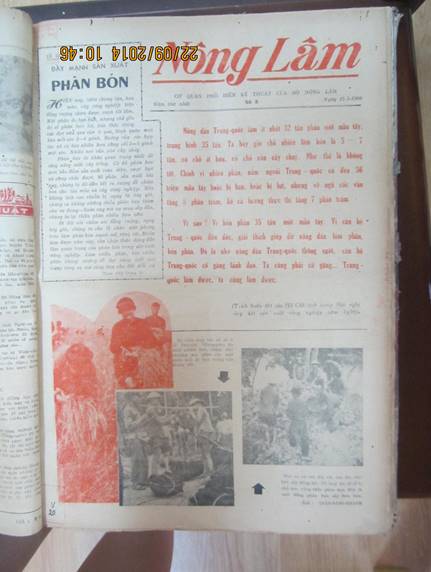
Và, Báo Nông lâm tổ chức ngay một số báo đặc biệt, sau đó là các chuyên đề về phân bón từ những huấn thị của Người, với các bài viết có sức lan tỏa rộng lớn như: “Đẩy mạnh sản xuất phân bón”, “Làm nhiều phân, phân tốt, bón đúng cách”, “Trồng cỏ mai – vịt làm phân xanh”, “Hưởng ứng đợt thi đua hoàn thành sản xuất vụ đông xuân: Tranh thủ xử dụng phân bón hợp lý”…,
Sau khi Chủ tịch Hồ Chí Minh có huấn thị: “Nhiệm vụ trước mắt là làm tốt vụ đông – xuân này. Vụ chiêm năm ngoái tốt. Vụ chiêm năm nay có giống tốt hơn… Phải chú ý nước, cải tiến nông cụ, chăn nuôi, trâu bò, phân bón…”, ngành Nông lâm đã triển khai ngay các giải pháp thực hiện và Báo Nông lâm đã có ngay các chuyên đề chuyên sâu như: “Thực hiện tốt toàn bộ nhiệm vụ kỹ thuật liên hoàn”, “Rút kinh nghiệm làm tốt vụ đay tới”, “Bảo đảm kế hoạch sản xuất cây công nghiệp”, “Thuốc đắng trừ sâu, đâu đâu cũng có”, “Phòng trừ dịch bệnh”, “Đẩy mạnh cản tiến nông cụ” “Cấy hết diện tích, đảm bảo kỹ thuật kịp thời vụ”, “Chế biến giáy và củ lang làm thức ăn cho lợn”, “Nuôi trâu bò phải trồng cỏ, nuôi lợn gà phải trồng hoa màu làm thức ăn”, “Ăn no, giống tốt, phòng trừ dich bệnh, chăm sóc đầy đủ”, “Nuôi lợn thịt mau lớn”…
Nhân dịp sinh nhật của Bác, 19/5/1960, Báo Nông lâm có bài viết: “Mừng thọ Hồ Chủ tịch, Quyết tâm làm theo lời Người dạy, phấn đấu thực hiện vụ mùa thắng lợi” với một loạt các chuyên đề phản ánh hoạt động của ngành nông lâm: “Biến căm thù Mỹ - Diệm thành sức mạnh quyết áp dụng đầy đủ kỹ thuật liên hoàn để tăng gia sản xuất, tăng vụ”, “Mức 10, biện pháp 15, quyết tâm 20”, “Xóa bỏ diện tích cấy thưa, mở rộng diện tích cấy đầy, tích cực làm phân bón cho nhiều, cho tốt”, “Tiếp tục chăm sóc và trồng cây công nghiệp”, “Có những cố gắng rất lớn, ý chí rất cao, quyết tâm rất mạnh, khắc phục mọi khó khăn, đẩy mạnh vụ mùa”, “Làm vụ mùa thắng lợi đề bù vụ chiêm – trích chỉ đạo của Thủ tướng Phạm Văn Đồng tại Quốc hội khó II”,…
Vào mùa thu tháng Tám lịch sử, dịp kỷ niệm 15 năm Cách mạng tháng Tám, Báo Nông lâm có loạt bài: “Phát huy truyền thống cách mạng tháng 8 quyết tâm thực hiện vụ mùa đại thắng lợi với tinh thần, lấy mùa bù chiêm”, “15 năm lớn mạnh của nền sản xuất nông nghiệp Việt Nam dưới chế độ Dân chủ cộng hòa”… để tuyên truyền, cổ vũ tinh thần sản xuất nông lâm.
Trong giai đoạn này, hiệu quả tuyên truyền của Báo Nông lâm đã góp phần tích cực vào thực hiện chủ trương khôi phục kinh tế, hàn gắn vết thương chiến tranh, cải cách ruộng đất, thực hiện người cày có ruộng, xây dựng các tổ đổi công để tiến lên HTX nông nghiệp và cải tạo XHCN. Phản ánh đầy đủ các chuyến đi thăm, chỉ đạo sản xuất nông lâm nghiệp tại các địa phương của Chủ tịch Hồ Chí Minh, tuyên truyền đường lối sản xuất nông lâm ngư nghiệp và sự chỉ đạo Người tạo nên sức lan tỏa rộng lớn, mang lại hiệu quả tuyên truyền thiết thực, góp phần tích cực vào thực hiện thắng lợi các nhiệm vụ, kế hoạch phát triển của ngành nông lâm.
Cuối năm 1960 Bộ Nông lâm tách thành Bộ Nông nghiệp, Bộ Nông trường, Tổng cục Thủy sản và Tổng cục Lâm nghiệp. Báo Nông lâm (của Bộ Nông lâm cũ) và một số tờ báo khác về nông nghiệp, nhân dân nông thôn… được nhập vào Báo Nông nghiệp - Cơ quan của Bộ Nông nghiệp . Chủ nhiệm là ông Phan Văn Chiêu, Thứ trưởng Bộ Nông nghiệp.
Giai đoạn đoạn này, Báo Nông nghiệp tập trung tuyên truyền các hoạt động của Bộ Nông nghiệp về triển khai thực hiện Nghị quyết TƯ 5 của BCH TƯ khóa III về nông nghiệp: “Tấn công vào nghèo nàn lạc hậu” với phong trào “quần chúng tiến công vào khoa học”, “làm ruộng thí nghiệm thâm canh năng suất cao”. Đi sâu vào tuyên truyền sản xuất quy vùng toàn diện: sản xuất lúa là chính, đồng thời phải rất coi trọng hoa màu, cây công nghiệp, cây ăn quả, chăn nuôi, thả cá và nghề phụ; coi trọng tăng năng suất nhưng phải chú ý diện tích bằng cách tăng vụ, trồng xen kẽ, vỡ hoang; chú trọng tăng cường kinh tế tập thể HTX, nhưng phải chú ý thích đáng kinh tế phụ gia đình; công nghiệp phải phát triển mạnh để cung cấp đủ hàng tiêu dùng cho nhân dân, trước hết là nông sân, cung cấp máy bơm nước, phân hóa học, thuốc trừ sâu, máy cày, máy bừa cho các HTX để đẩy mạnh nông nghiệp. Công nghiệp và nông nghiệp phải giúp đỡ nhau để cùng phát triển…
Với số thời lượng và số lượng phát hành lớn, Báo Nông nghiệp đã góp phần thúc đẩy nền nông nghiệp phát triển theo hướng tăng năng suất, chất lượng, hiệu quả nhờ áp dụng khoa học kỹ thuật, đưa máy móc thiết bị vào sản xuất và chế biến sản phẩm nông nghiệp.
Đầu năm 1963 trước tình hình chính trị và quân sự ở miền Nam có nhiều biến chuyển, theo nhận định của Chủ tịch Hồ Chí Minh, cuộc chiến tranh phá hoại của giặc Mỹ có thể xảy ra ở miền Bắc. Và vào thời điểm này, Báo Nông nghiệp được đổi tên thành Báo Khoa học Kỹ thuật nông nghiệp . Nội dung đi sâu hơn vào phần khoa học kỹ thuật nông nghiệp, phổ biến kinh nghiệm sản xuất, xây dựng cơ sở vật chất, kỹ thuật cho nông nghiệp để đảm bảo năng suất lao động, diện tích và sản lượng lương thực trong thời chiến. Đồng thời tập trung tuyên truyền thực hiện 3 mục tiêu: “5 tấn thóc, 2 đầu lợn, 1 lao động/ha gieo trồng trong một năm...”
Trong số báo đầu năm mới 1971, Báo Khoa học Kỹ thuật nông nghiệp có một loại bài viết về thực hiện huấn thị, lời căn dặn, di chúc của Người đối với nông nghiệp nước nhà như: “Đoàn kết, chiến đấu, sản xuất, thắng lợi – Chủ tịch Tôn Đức Thắng” “Còn non, còn nước, còn người; Thắng giặc Mỹ ta sẽ xây dựng hơn mười ngày nay”, “Dù khó khăn gian khổ đến mấy, nhân dân ta nhất định toàn thắng, đế quốc Mỹ nhất định phải cút khỏi nước ta. Tổ quốc ta nhất định sẽ thống nhất. Đồng bào Nam – Bắc nhất định sẽ sum họp một nhà – trích Di chúc của Chủ tịch Hồ Chí Minh”...
Thóc không thiếu một cân, quân không thiếu một người” để “Đến ngày thắng lợi, nhân dân ta sẽ xây dựng lại đất nước ta đàng hoàng hơn, to đẹp hơn!”
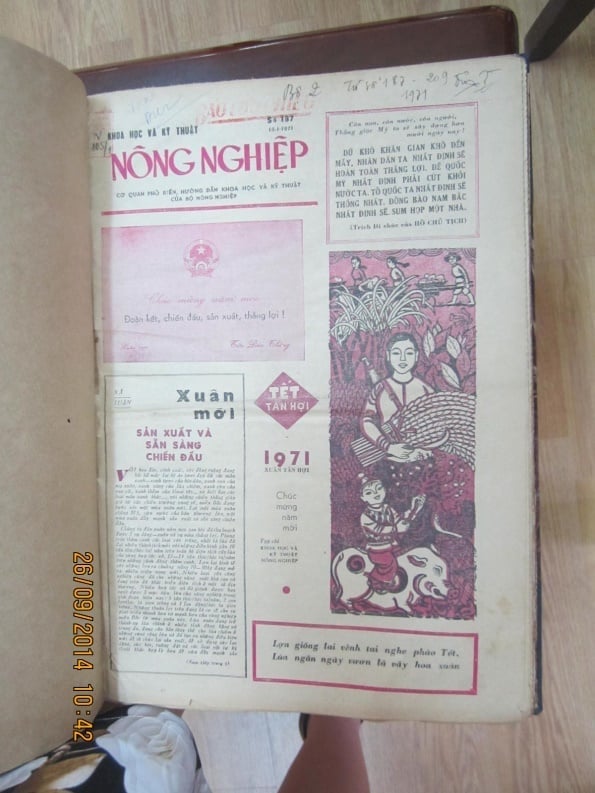
Tết năm 1972, Báo đăng chuyên đề về Tết trồng cây: “Các nơi sôi nổi chuẩn bị Tết trồng cây “đời đời nhớ ơn Bác Hồ” năm 1972”, “Tổ chức tốt Tết trồng cây “đời đời nhớ ơn Bác Hồ” năm 1972”, bài báo viết: “Để ghi nhớ mãi mãi công ơn của Hồ Chủ tịch đã dạy cho toàn Đảng, toàn dân ta về lợi ích vô cùng to lớn của công tác trồng cây, khắp nơi đã sôi nổi thi đua thực hiện Tết trồng cây Đời đời nhớ ơn Bác năm 1971… Hàng chục triệu cây được trồng thêm góp phần làm cho rừng cây được vun trồng trong hơn mời lăm năm làm theo lời Bác của nhân dân ta ngày một tươi tốt, xum xuê…”.
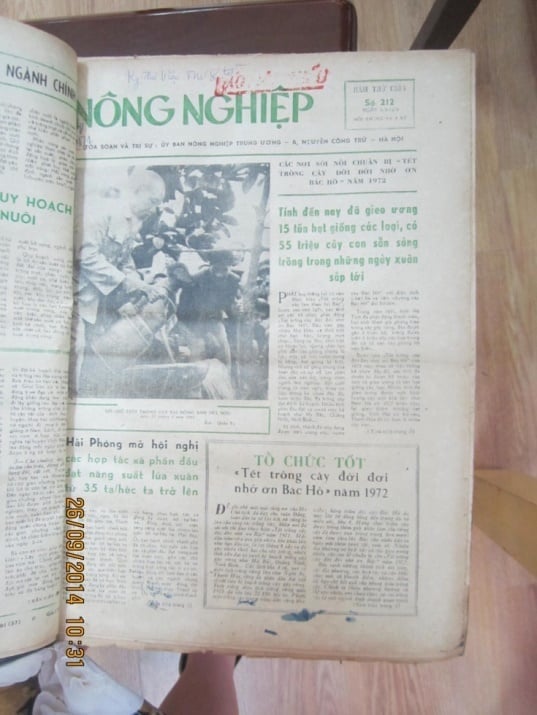
Thực hiện lời căn dặn của Bác, Chủ tịch Tôn Đức Thắng chỉ đạo: “Tăng cường đoàn kết, Giành thắng lợi mới trong chiến đấu, sản xuất và công tác!- Chủ tịch Tôn Đức Thắng”, “Phấn đấu giành thắng lợi toàn diện trên mặt trận sản xuất nông nghiệp năm 1972”, “Quyết giành vụ sản xuất chiêm xuân thắng lợi toàn diện...
Tháng 4/1971, Ủy ban Nông nghiệp Trung ương được thành lập trên cơ sở hợp nhất Bộ Nông nghiệp, Bộ Nông trường và Ban quản lý hợp tác xã sản xuất nông nghiệp. Báo Khoa học Kỹ thuật nông nghiệp được đổi trở lại tên Báo Nông nghiệp - Cơ quan của Ủy ban Nông nghiệp Trung ương.
Trong số báo phát hành ngày 15/5/1972, kỷ niệm ngày sinh nhật Bác, Báo Nông nghiệp đăng lại lời căn dặn của Bác năm 1966: “Chiến tranh có thể kéo dài 5 năm, mười năm, 20 năm hoặc lâu hơn nữa. Hà Nội, Hải Phòng và một số thành phố, xí nghiệp có thể bị tàn phá, song nhân dân Việt Nam quyết không sợ! Không có gì quý hơn độc lập, tự do. Đến ngày thắng lợi, nhân dân ta sẽ xây dựng lại đất nước ta đàng hoàn hơn, to đẹp hơn”.
Tháng 8/1972, nhân kỷ niệm Cách mạng tháng Tám, Báo Nông nghiệp có bài viết: “Thắng lợi rực rỡ của vụ rau màu đông - xuân đầu tiên sau cách mạng” nhắc lại vụ rau màu thắng lợi ngay sau Cách mạng tháng Tám thành công năm 1945, là kết quả của lời kêu gọi của Hồ Chủ Tịch và huấn thị của Người. Bài báo viết: “Chính phủ lâm thời của nước Việt Nam dân chủ công hòa vừa được thành lập đã phải đảm nhiệm ngay việc cứu đói. Để cứu đói, Hồ Chủ Tịch kêu gọi nhường cơm sẻ áo…. Lời kêu gọi tha thiết này đã đi thẳng vào lòng của nhân dân ta, vối có truyền thống yêu nước, thương nòi, vốn có tìm cảm “nhiễu điều phủ lấy giá gương, người chung một nước thì thương nhau cùng”. Để cứu đói, Hồ Chủ tịch kêu gọi “Tăng gia sản xuất! Tăng gia sản xuất ngay! Tăng gia sản xuất nữa!”. Lời kêu gọi khẩn thiết này đã đi thẳng vào lòng của nông dân ta, của toàn dân ta, đã phát huy cao đội tinh thần lao động cần cù và dũng cảm của nông dân và các tầng lớp nhân dân từ thành thị đến nông thôn…”
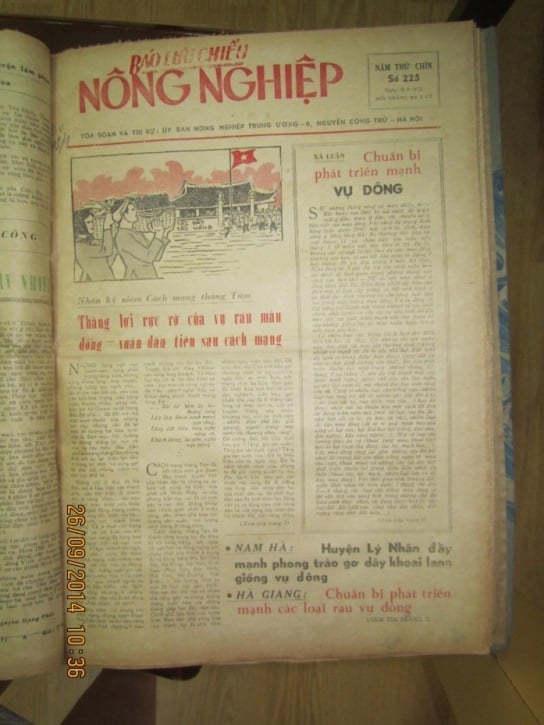
Năm 1976, thực hiện nhiệm vụ mới, Ủy ban Nông nghiệp Trung ương được đổi tên lại thành Bộ Nông nghiệp. Báo Nông nghiệp trở về với Bộ chủ quản cũ là Bộ Nông nghiệp.
Ngày 20/4/1978, Báo Nông nghiệp đăng bài viết của phó Thủ tướng Chính phủ Võ Nguyên Giáp tại Hội nghị khoa học kỹ thuật toàn quốc lần thứ hai: “Phó Thủ tướng Võ Nguyên Giáp nói về vấn đề đẩu mạnh cuộc cách mạng khoa học kỹ thuật trong nông nghiệp nước ta” : “Tập trung cao độ lực lượng cả nước, tạo ra một bước phát triển vượt bậc của nông nghiệp”.
Ngày 20/6/201978 đăng bài “Phó Thủ tướng Võ Chí Công: Kết hợp chặt chẽ cuộc vận động tổ chức lại sản xuất và cải tiến quản lý nông, lâm nghiệp từ cơ sở với phong trào đẩy mạnh sản xuất, hoàn thành thắng lợi kế hoạch nhà nước năm 1978 về nông nghiệp, chuẩn bị kế hoạch 1979”… Tinh thần trên cần được quán triệt vào nội dung của các cuộc vận động cho phù hợp với quá trình phát triển đưa sản xuất nền nông, lâm nghiệp đi lên sản xuất lớn xã hội chủ nghĩa…”
Bài viết trên Báo Nông nghiệp số 17, ngày 5/9/1978: “Nâng cao hơn nữa vai trò của phụ nữa trong sản xuất nông nghiệp” , trích dẫn lời huấn thị của Bác: “Non sông gấm vóc Việt Nam do phụ nữ ta, trẻ cũng như già, ra sức dệt thêu mà thêm tốt đẹp, rực rỡ”.
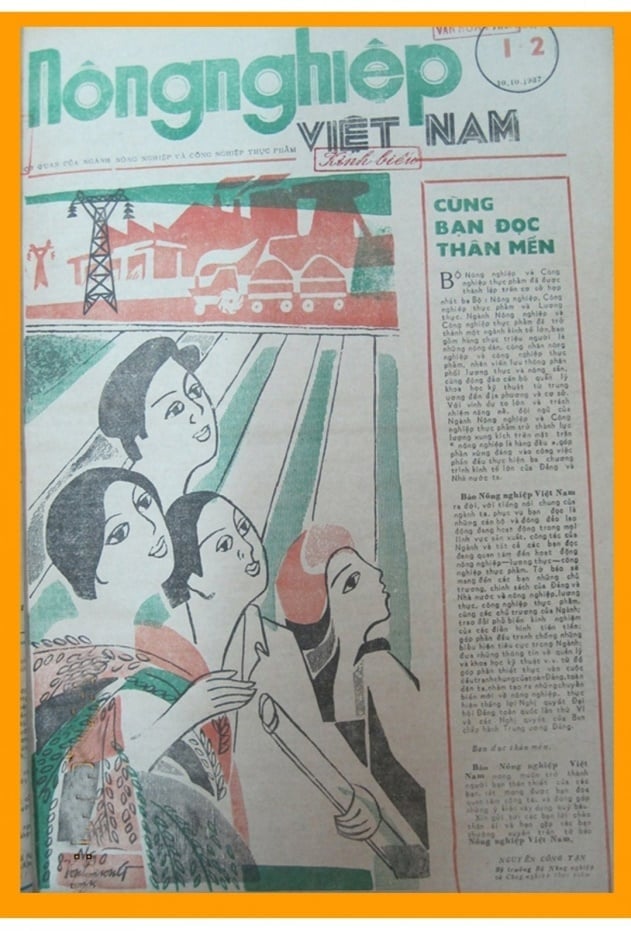
“Nông dân ta giàu thì nước ta giàu. Nông nghiệp ta thịnh thì nước ta thịnh”
Đại hội Đảng toàn quốc lần thứ VI năm 1986 xác định đổi mới toàn diện. Thực hiện nghị quyết của Đại hội Đảng VI, để phù hợp với tình hình mới, tháng 2/1987 Bộ Nông nghiệp và Công nghiệp thực phẩm được thành lập trên cơ sở sáp nhập 3 Bộ: Nông nghiệp, Lương thực và Công nghiệp thực phẩm.
Ngày 30/05/1987 Báo Nông nghiệp Việt Nam – Cơ quan của ngành nông nghiệp và công nghiệp thực phẩm được thành lập trên cơ sở hợp nhất Báo Nông nghiệp (của Bộ Nông nghiệp cũ) và Báo Lương thực (của Bộ Lương thực cũ), khép lại 25 năm, một phần tư thế kỷ qua, 613 số Báo Nông nghiệp .
Đến năm 1995, Bộ Nông nghiệp và Phát triển nông thôn được thành lập, Báo Nông nghiệp Việt Nam vẫn giữ nguyên tên gọi Báo Nông nghiệp Việt Nam - Cơ quan luận của Bộ Nông nghiệp và Phát triển nông thôn, diễn đàn vì sự phát triển nông nghiệp và nâng cao dân trí nông thôn .
Trong những năm đổi mới, đặc biệt là sự phát triển vượt bậc của ngành nông nghiệp mấy thập kỷ qua, thực hiện nhiệm vụ tuyên truyền về các lĩnh vực quản lý của Bộ, ngành giao, Báo Nông nghiệp Việt Nam đã thường xuyên có những bài về các ngành, lĩnh vực, đơn vị, cá nhân điển hình thực hiện tốt những lời căn dặn, huấn thị và mong muốn của Bác, như: Bài “Bác nói và cùng làm với dân”, viết: “Vi hành” ở biển Sầm Sơn. Người ghé Sầm Sơn tắm biển. Hiểu được ý Bác. Anh Vũ Kỳ cho bố trí một nơi Bác đến tắm được gần dân, xa bãi tắm của du khách nghỉ hè. Bác nói với mấy vị cán bộ cao cấp cùng đi: - Chúng mình về với dân, cùng làm với dân để được tắm biển. Bác hỏi đồng chí cán bộ cao cấp đang sánh bước với Bác: - Chú có biết kéo lưới rùng không? - Dạ… ông cười trừ - không biết Bác ạ. - Chú biết cầm chèo chứ? - Không, thưa Bác. - Cũng không biết. Chú khai thành phần của chú là dân nghèo miền biển kia mà! - Ở vùng biển nhưng chỉ làm công việc trên cạn, thưa Bác. Bác cười ý nhị, nói vui: "Có lẽ Ban tổ chức thêm mục khai lý lịch thành phần "Ngư dân không biết nghề biển".
Hay trong loạt bài “Thủy lợi kiến quốc”, viết: Người từng nhấn mạnh: “Việt Nam ta có hai tiếng Tổ quốc, ta cũng gọi Tổ quốc là đất nước; có đất và có nước, thì mới thành Tổ quốc. Có đất lại có nước thì dân giàu, nước mạnh”; Loạt bài “65 năm Bác Hồ về thăm Đồng Giao: Đi theo kim chỉ nam của Người”, viết: “Bác căn dặn: "Các cô, các chú phải tích cực sản xuất, chọn cây trồng, vật nuôi phù hợp điều kiện tự nhiên, để nâng cao năng suất, xứng đáng là hình mẫu của kinh tế quốc doanh nông nghiệp xã hội chủ nghĩa".
Trong dịp kỷ niệm 70 năm ngày thành lập Báo Nông nghiệp Việt Nam, Chủ tịch Nước Trương Tấn Sang đã gửi Thư động viên cán bộ, bên tập viên, phóng viên, nhân viên Báo Nông nghiệp Việt Nam , trong thư Chủ tịch Nước Trương Tấn Sang viết:
Báo Nông nghiệp Việt Nam , tiền thân là Báo Tấc Đất, cơ quan cổ động sản xuất của Bộ Canh nông (nay là Bộ Nông nghiệp và Phát triển nông thôn) được Chính phủ thành lập ngày 04/12/1945, là một trong những tờ báo đầu tiên được thành lập ngay sau ngày đất nước giành được độc lập.
Tờ báo có vinh dự được Bác Hồ trực tiếp đặt tên và viết bài “GỬI NÔNG GIA VIỆT – NAM” trên số báo đầu tiên, phát hành ngày 07/12/1945. Trong bài viết Bác căn dặn: “Câu tục ngữ “Tấc Đất, Tấc Vàng” ngày nay có hai ý nghĩa: 1 – Báo Tấc Đất sẽ chỉ bảo cho anh chị em nhà nông làm thế nào cho nông nghiệp mau chóng tiến bộ. Sự chỉ bảo của Báo Tấc Đất cũng quý hóa như Tấc Vàng. 2- Loài người ai cũng “dĩ thực vi tiên” (nghĩa là trước tiên cần phải ăn), nước ta thì “dĩ nông vi bản” (nghĩa là nghề nông làm gốc). Dân muốn ăn no thì phải trồng trọt cho nhiều. Nước muốn giàu mạnh thì phải phát triển nông nghiệp. Vậy chúng ta không nên bỏ hoang một Tấc Đất nào hết. Chúng ta phải quý mỗi Tấc Đất như Tấc Vàng. Vì cứu quốc, các chiến sỹ đấu tranh ở ngoài mặt trận, vì kiến quốc nhà nông ra sức phấn đấu ngoài đồng ruộng. Chiến sỹ ra sức giữ gìn nước non. Nhà nông ra sức giúp đỡ chiến sỹ. Hai công việc khác nhau nhưng thật ra là hợp tác. Cho nên hai bên đều có công với Dân tộc, đều là Anh hùng...”.
Điều đó thể hiện sự quan tâm đặc biệt, sự động viên to lớn của Đảng, Bác Hồ đối với nhà nông trong hoàn cảnh vô vàn khó khăn khi nước nhà vừa giành được độc lập.
Trong suốt chặng đường 70 năm xây dựng và phát triển, từ Báo Tấc Đất buổi đầu đến Báo Nông nghiệp Việt Nam ngày nay, tờ báo nhiều lần được đổi tên, nhưng dù mang tên gì, trong điều kiện nào, khó khăn hay thuận lợi, cán bộ, phóng viên, biên tập viên, người lao động của báo luôn ghi nhớ, làm theo lời căn dặn của Bác Hồ, thực hiện tốt nhiệm vụ chính trị được giao.
Những năm đổi mới vừa qua, Báo Nông nghiệp Việt Nam dưới sự quản lý, chỉ đạo của Bộ Nông nghiệp và Phát triển nông thôn, đã tuyên truyền sâu rộng và hiệu quả đường lối, chủ trương của Đảng, chính sách, pháp luật của Nhà nước về nông nghiệp - nông dân - nông thôn. Hiện nay, tờ báo đang tích cực tuyên truyền, phổ biến, góp phần đưa Nghị quyết 26-NQ/TƯ của Ban Chấp hành Trung ương khóa X về nông nghiệp - nông dân - nông thôn vào cuộc sống; cổ vũ, động viên để Chương trình Mục tiêu quốc gia xây dựng nông thôn mới trở thành phong trào sôi nổi khắp cả nước; hướng dẫn, trang bị kiến thức khoa học kỹ thuật, giới thiệu điển hình tiên tiến trong tái cơ cấu ngành nông nghiệp, phát triển nông nghiệp và nông thôn…
Nhân dịp Báo Nông nghiệp Việt Nam kỷ niệm 70 năm Ngày thành lập và đón nhận Huân chương Lao động hạng Nhất, tôi biểu dương toàn thể cán bộ, phóng viên, biên tập viên, viên chức và người lao động Báo Nông nghiệp Việt Nam đã nỗ lực phấn đấu, vượt qua nhiều khó khăn, hoàn thành tốt nhiệm vụ vẻ vang của mình. Trong những năm tới, tôi mong muốn và tin tưởng Báo Nông nghiệp Việt Nam , phát huy truyền thống 70 năm qua, tiếp tục phát triển, luôn là cơ quan báo chí đi đầu trong công tác tuyên truyền về nông nghiệp - nông dân - nông thôn, là bạn đồng hành tin cậy của nhà nông, đóng góp tích cực vào sự nghiệp công nghiệp hóa, hiện đại hóa, hội nhập quốc tế của nông nghiệp, nông dân, sự phát triển của nông thôn nước ta.
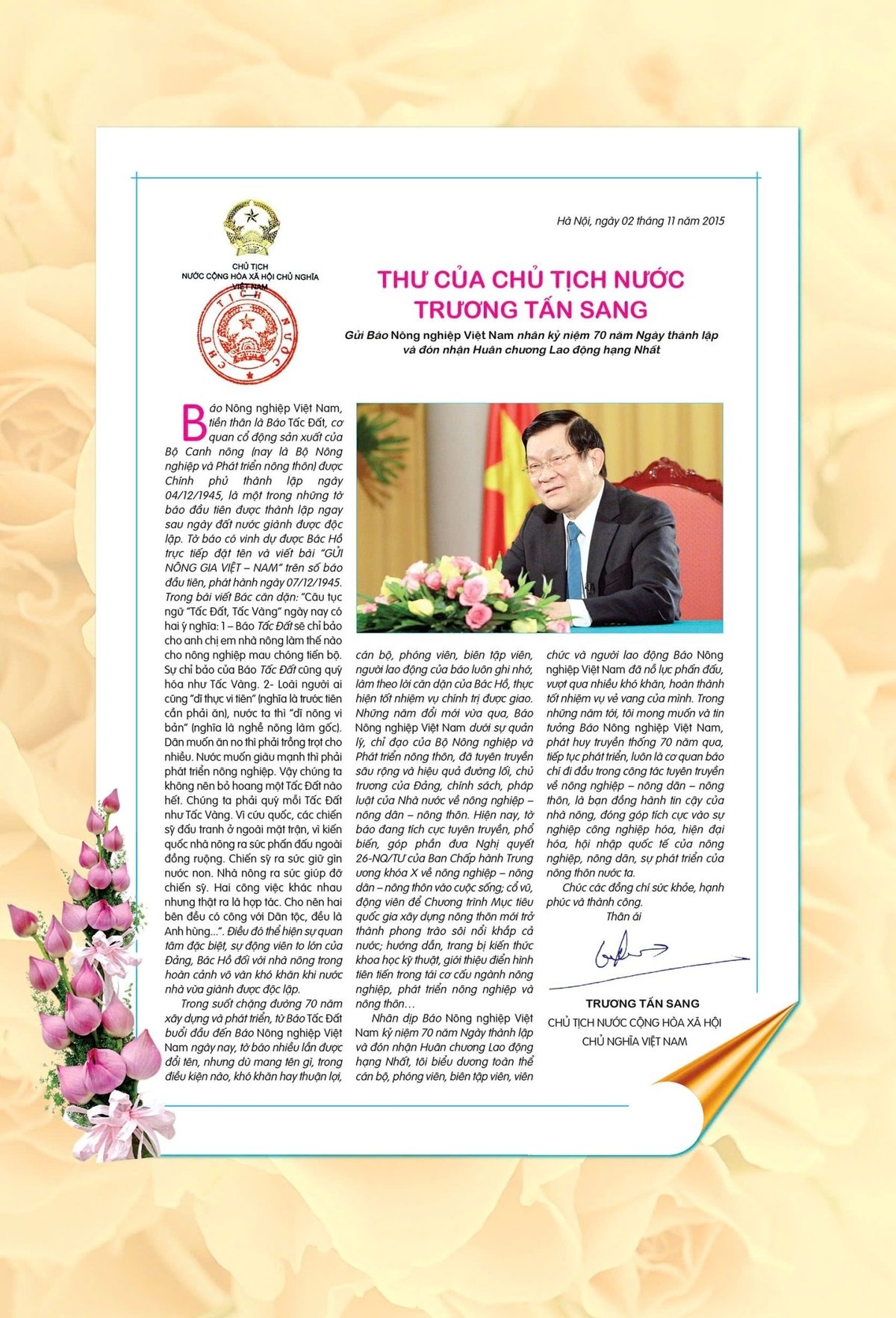
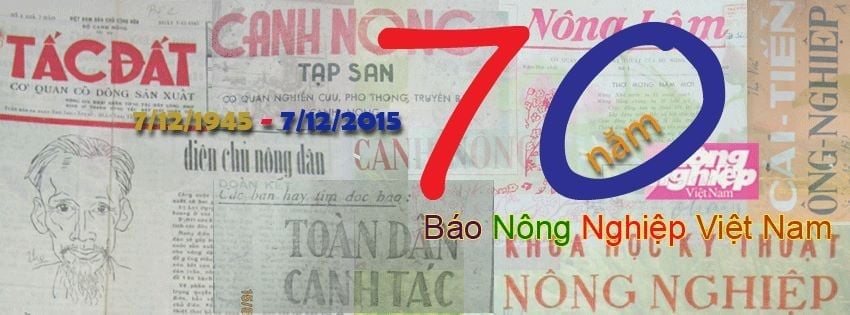
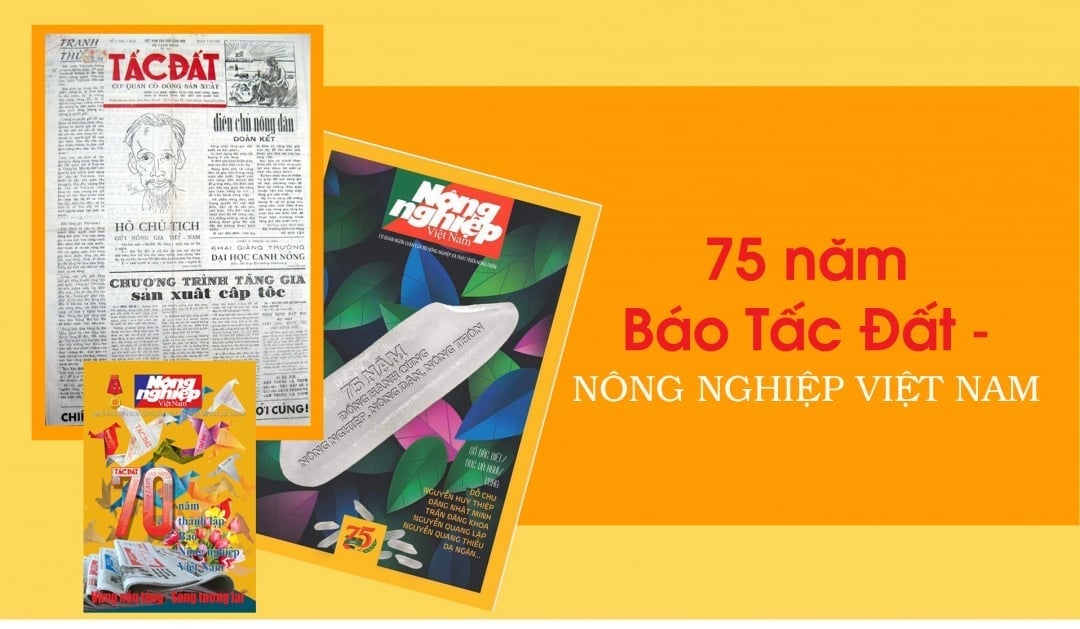
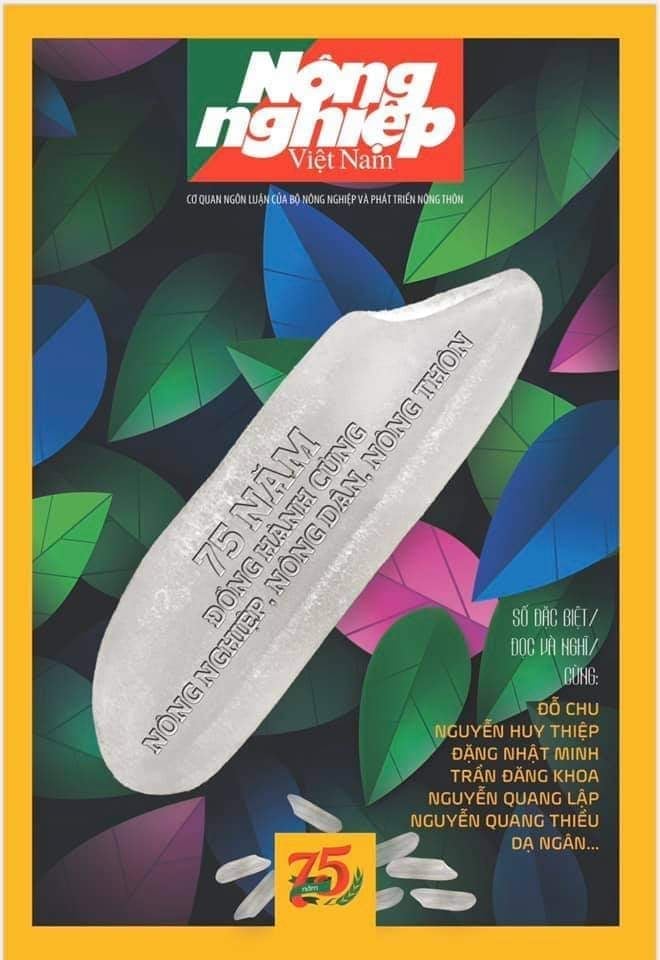
Thực hiện chủ trương của Đảng và Nhà nước về cuộc cách mạng tinh gọn bộ máy, đảm bảo bộ máy tinh, gọn, mạnh, hoạt động hiệu năng, hiệu lực, hiệu quả đưa nước ta bước vào kỷ nguyên mới – “Kỷ nguyên vươn mình của Dân tộc Việt Nam”, tháng 2/2025, Bộ Nông nghiệp và Môi trường được thành lập trên cơ sở hợp nhất Bộ Nông nghiệp và Phát triển nông thôn và Bộ Tài nguyên và Môi trường.
Theo đó, ngày 25/2/2025 Báo Nông nghiệp và Môi trường – Cơ quan ngôn luận của Bộ Nông nghiệp và Môi trường, diễn đàn xã hội của nhân dân vì sự phát triển bền vững của Việt Nam được thành lập trên cơ sở hợp nhất Báo Nông nghiệp Việt Nam (cơ quan ngôn luận của Bộ Nông nghiệp và Phát triển nông thôn cũ) và Báo Tài nguyên và Môi trường (cơ quan ngôn luận của Bộ Tài nguyên và Môi trường cũ). Ngày 14/4/2025 Báo Nông nghiệp và Môi trường xuất bản số đầu tiên với chủ đề “Đất nước hành trình xanh”.
Với bề dày truyền thống 80 năm hình thành và phát triển, Báo Nông nghiệp và Môi trường sẽ tiếp tục thực hiện lời căn dặn của Bác Hồ:
“Báo Tấc Đất sẽ chỉ bảo cho anh em chị em nhà nông làm thế nào cho nông nghiệp mau chóng tiến bộ. Sự chỉ bảo của Báo Tấc Đất cũng quý hóa như Tấc Vàng.
“Loài người ai cũng “dĩ thực vi tiên” (nghĩa là trước tiên cần phải ăn). Nước ta thì “dĩ nông vi bản” (nghĩa là nghề nông làm gốc). Dân muốn ăn no thì phải giồng giọi cho nhiều. Nước muốn giàu mạnh thì phải phát triển nông nghiệp. Vậy chúng ta không nên bỏ hoang một Tấc Đất nào hết. Chúng ta phải quý mỗi Tấc Đất như một Tấc Vàng”.
Báo Nông nghiệp và Môi trường sẽ luôn là cơ quan tuyên truyền, truyền thông đa phương tiện, đa nền tảng chủ lực, đồng hành cùng nông nghiệp, nông dân, nông thôn, tài nguyên và môi trường trong thực hiện lời căn dặn, mong muốn của Chủ tịch Hồ Chí Minh “ Nông dân ta giàu thì nước ta giàu. Nông nghiệp ta thịnh thì nước ta thịnh” và chủ trương, đường lối của Đảng, chính sách, phát luật của Nhà nước “Nông nghiệp là lợi thế quốc gia”, “Nông nghiệp và trụ sỡ của nền kinh tế”, “Môi trường luôn được xác định là một trong ba trụ cột phát triển bền vững của quốc gia”.
Báo Nông nghiệp và Môi trường nguyện là một nốt nhạc âm thầm nhưng đầy nội lực, luôn đổi mới, sáng tạo, vươn lên trong bản hùng ca phát triển bền vững của đất nước, vì một Việt Nam xanh trong kỷ nguyên vươn mình của Dân tộc Việt Nam.
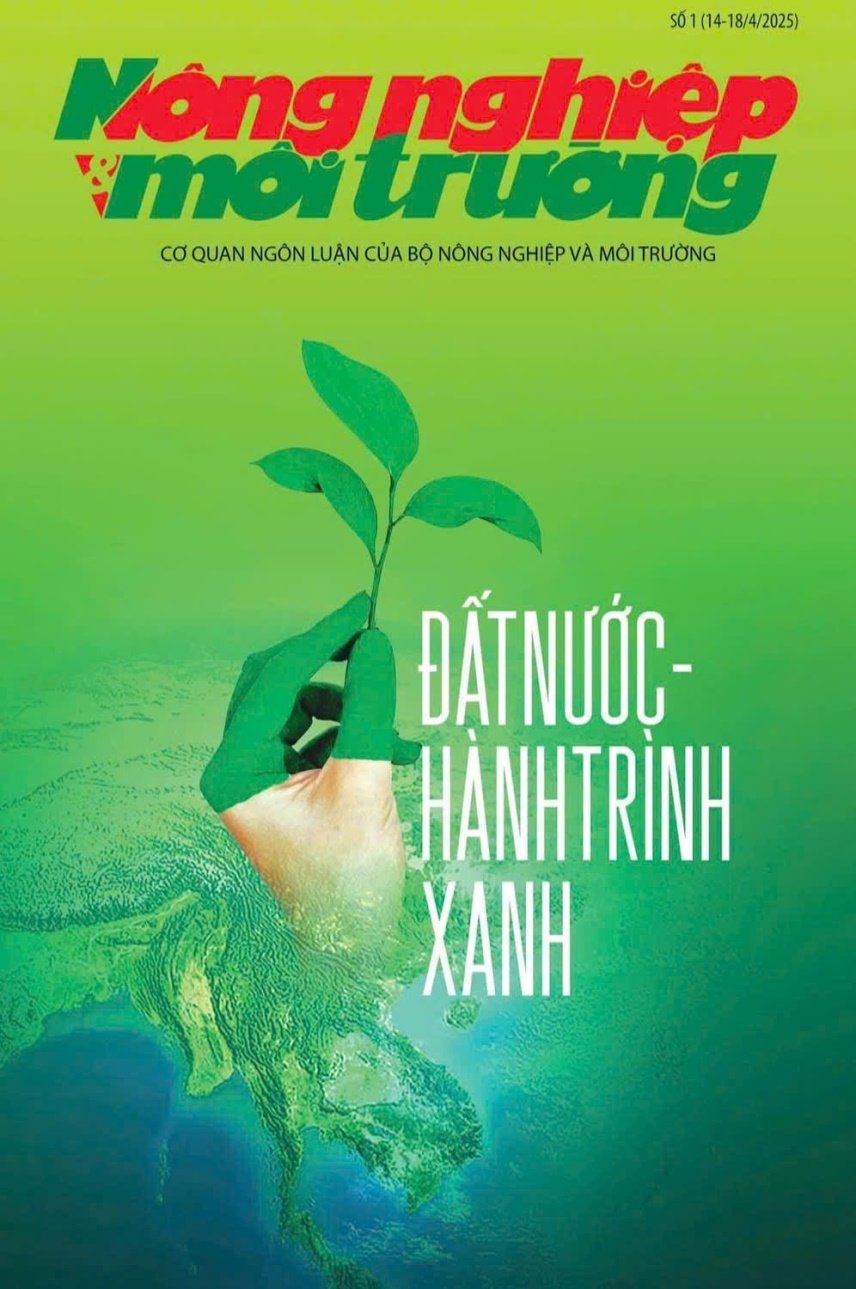
Nguồn: https://nongnghiepmoitruong.vn/80-nam-nganh-nong-nghiep-va-moi-truong-thuc-hien-loi-can-dan-cua-bac-qua-lang-kinh-cua-bao-nong-nghiep-va-moi-truong-d784141.html


![[Photo] Unique architecture of the deepest metro station in France](https://vphoto.vietnam.vn/thumb/1200x675/vietnam/resource/IMAGE/2025/11/14/1763107592365_ga-sau-nhat-nuoc-phap-duy-1-6403-jpg.webp)

![[Photo] Unique art of painting Tuong masks](https://vphoto.vietnam.vn/thumb/1200x675/vietnam/resource/IMAGE/2025/11/14/1763094089301_ndo_br_1-jpg.webp)





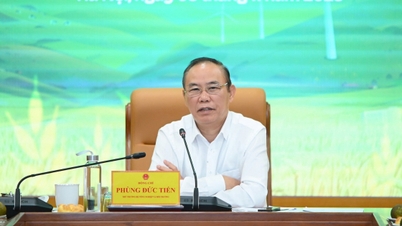

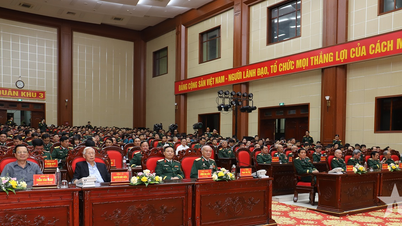

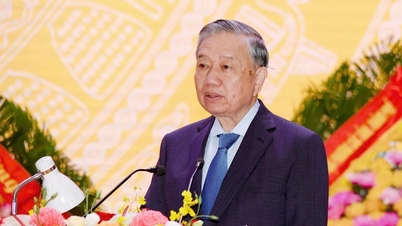

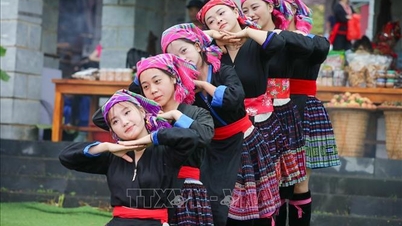

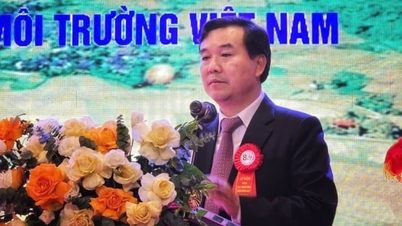

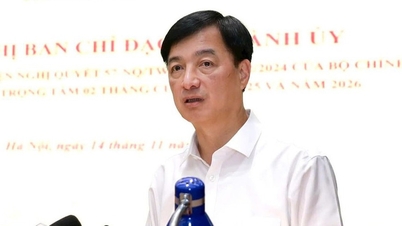

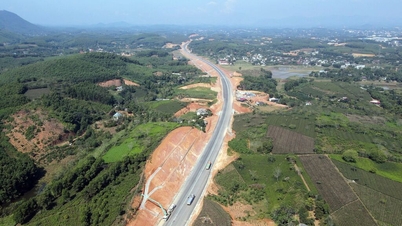





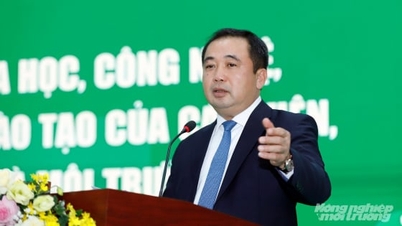
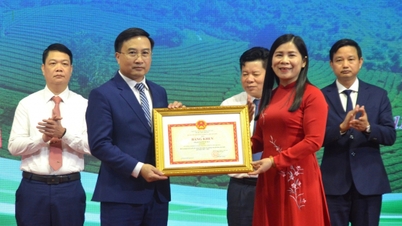
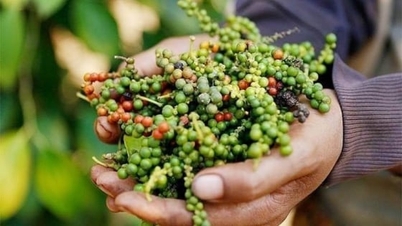
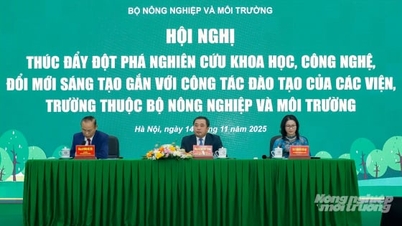
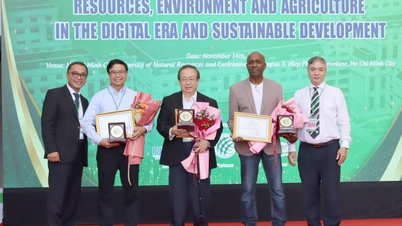


![[Photo] Special class in Tra Linh](https://vphoto.vietnam.vn/thumb/1200x675/vietnam/resource/IMAGE/2025/11/14/1763078485441_ndo_br_lop-hoc-7-jpg.webp)













































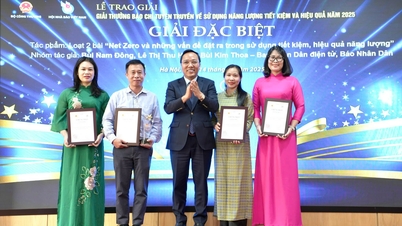

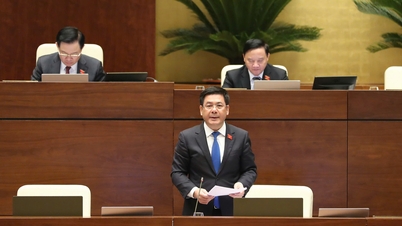

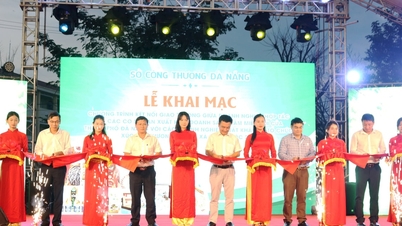

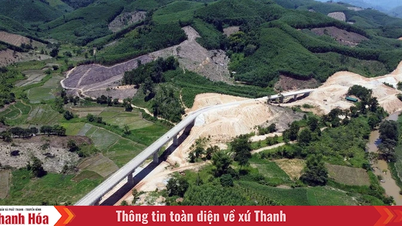



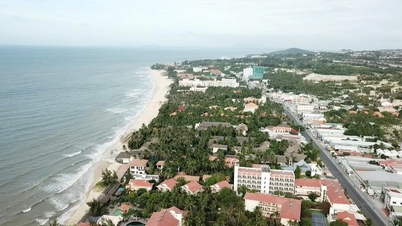



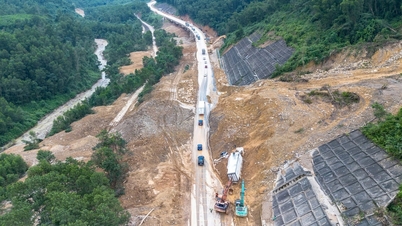









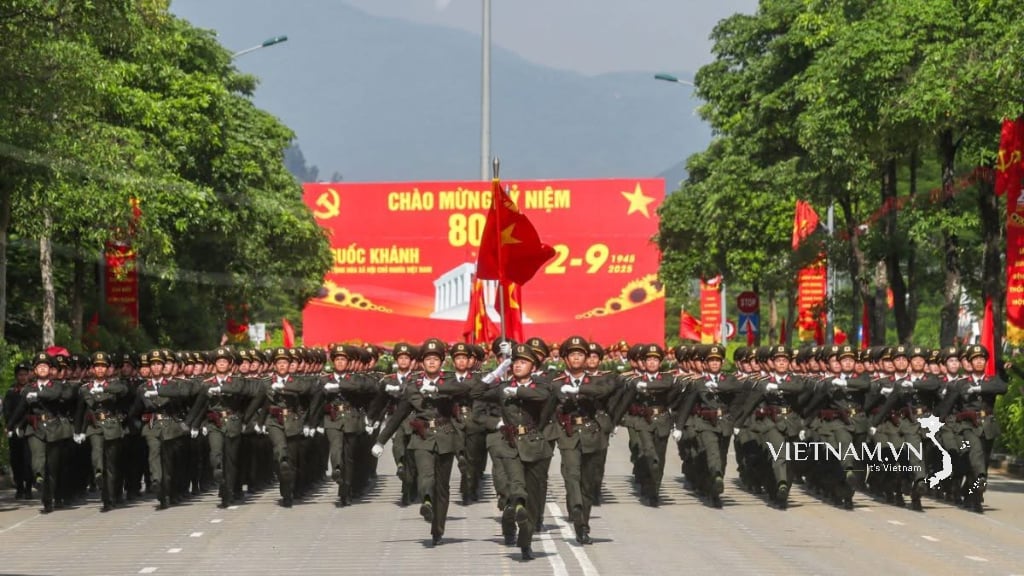
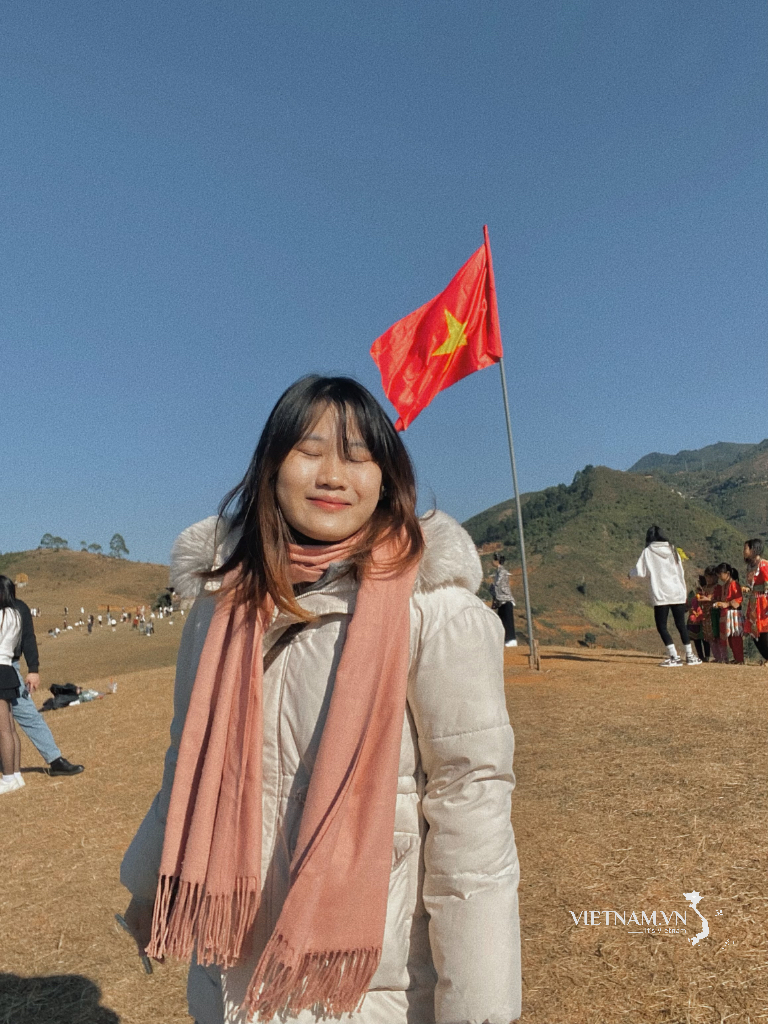
Comment (0)